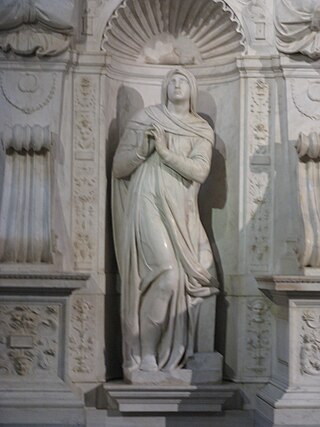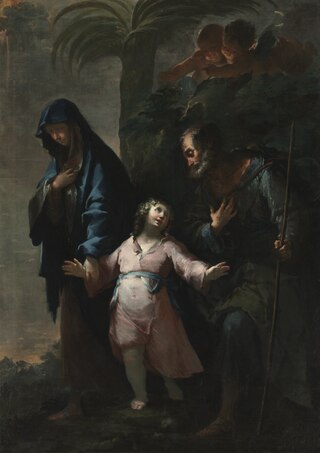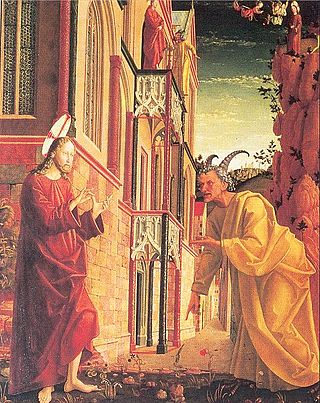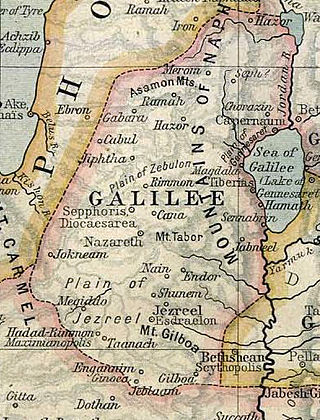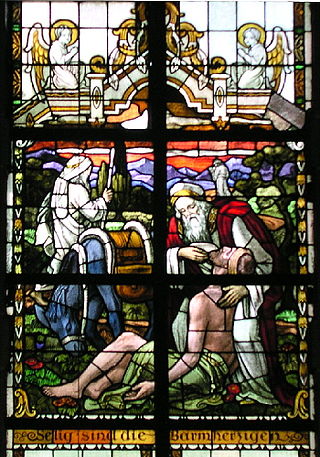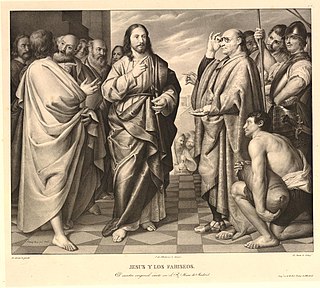Augustine: The other Evangelists omit these words of John. What follows, This is He, &c. it is not clear whether the Evangelist speaks them in his own person, or whether they are part of John's preaching, and the whole from Repent ye, to Esaias the prophet, is to be assigned to John. It is of no importance that he says, This is he, and not, I am he; for Matthew speaking of himself says, He found a man sitting at the toll-office; (Mat. 9:9.) not He found me. Though when asked what he said of himself, he answered, as is related by John the Evangelist, I am the voice of one crying in the wilderness.
Gregory the Great: It is well known that the Only-begotten Son is called the Word of the Father; as in John, In the beginning was the Word. (John 1:1.) But it is by our own speech that we are known; the voice sounds that the words may be heard. Thus John the forerunner of the Lord's coming is called, The voice, because by his ministry the voice of the Father is heard by men.
Pseudo-Chrysostom: The voice is a confused sound, discovering no secret of the heart, only signifying that he who utters it desires to say somewhat; it is the word that is the speech that openeth the mystery of the heart. Voice is common to men and other animals, word peculiar to man. John then is called the voice and not the word, because God did not discover His counsels through him, but only signified that He was about to do something among men; but afterwards by His Son he fully opened the mystery of his will.
Rabanus Maurus: He is rightly called, The voice of one crying, on account of the loud sound of his preaching. Three things cause a man to speak loud; when the person he speaks to is at a distance, or is deaf, or if the speaker be angry; and all these three were then found in the human race.
Glossa Ordinaria: John then is, as it were, the voice of the word crying. The word is heard by the voice, that is, Christ by John.
Bede: In like manner has He cried from the beginning through the voice of all who have spoken aught by inspiration. And yet is John only called, The voice; because that Word which others showed afar off, he declares as nigh.
Gregory the Great: Crying in the desert, because he shows to deserted and forlorn Judæa the approaching consolation of her Redeemer.
Saint Remigius: Though as far as historical fact is concerned, he chose the desert, to be removed from the crowds of people. What the purport of his cry was is insinuated, when he adds, Make ready the way of the Lord.
Pseudo-Chrysostom: As a great King going on a progress is preceded by couriers to cleanse what is foul, repair what is broken down; so John preceded the Lord to cleanse the human heart from the filth of sin, by the besom of repentance, and to gather by an ordinance of spiritual precepts those things which had been scattered abroad.
Gregory the Great: Every one who preacheth right faith and good works, prepares the Lord's way to the hearts of the hearers, and makes His paths straight, in cleansing the thoughts by the word of good preaching.
Glossa Ordinaria: Or, faith is the way by which the word reaches the heart; when the life is amended the paths are made straight.



